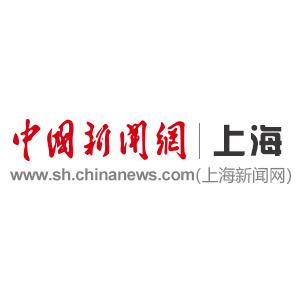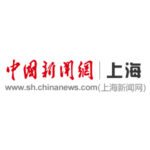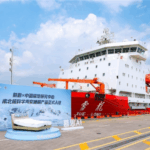HSBC Private Bank released its “Global Entrepreneur Wealth Report” on the 21st, stating that nearly 60% (58%) of surveyed overseas entrepreneurs intend to expand their business operations in mainland China within the next year.
This survey was conducted across 15 markets in Asia, the Middle East, Europe, and America, targeting 2,939 high-net-worth entrepreneurs with at least $2 million in investable assets. Over 400 entrepreneurs from mainland China participated in the survey.
The widespread application of artificial intelligence technology, a highly skilled and competitive labor market, and a substantial customer base are key factors that make surveyed entrepreneurs optimistic about the mainland China market. Entrepreneurs from Indonesia (83%), the United Arab Emirates (81%), and Saudi Arabia (79%) show particularly strong interest in expanding into the mainland China market, reflecting the increasingly international investment perspective of Asian entrepreneurs.
Echoing overseas entrepreneurs’ optimism about China’s AI development potential, mainland Chinese entrepreneurs are also encouraged by growth opportunities brought by technological advancement. They maintain an optimistic outlook on business prospects and actively plan for the future. Exploring new markets, investing in AI technology, and expanding talent pools have become their top three strategic initiatives for business expansion in the coming year.
Beyond business expansion strategies, the survey also examined global entrepreneurs’ views on personal wealth. Compared to other markets, surveyed entrepreneurs from mainland China are more inclined to closely link personal wealth with business development. 46% of respondents stated that continuously investing in their enterprises and expanding business territories are important drivers for their wealth accumulation.
The survey also found that in the current uncertain market environment, art as an alternative investment is gaining popularity among entrepreneurs in East Asia, particularly Chinese entrepreneurs. 43% of mainland Chinese respondents invest personal wealth in art collections, significantly exceeding the global average of 24%.
HSBC Private Bank
HSBC Private Bank is the wealth management division of HSBC Group, providing personalized banking and financial services to high-net-worth individuals globally. It was formed through the consolidation of HSBC’s various private banking operations and expanded significantly with acquisitions like Republic National Bank of New York (1999) and Safra Republic Holdings (2005). The institution leverages HSBC’s international network to offer clients cross-border wealth solutions spanning private banking, asset management, and advisory services.
mainland China
Mainland China refers to the territory of the People’s Republic of China, excluding its special administrative regions of Hong Kong and Macau. It is a region with one of the world’s oldest continuous civilizations, home to successive dynasties for millennia. In the modern era, it has been governed by the Communist Party of China since its establishment in 1949.
Indonesia
Indonesia is the world’s largest archipelago nation, located in Southeast Asia, with a history deeply shaped by its strategic location along ancient maritime trade routes. This led to the rise of powerful Hindu-Buddhist kingdoms like Srivijaya and Majapahit, followed by centuries of Dutch colonization before it declared independence in 1945. Today, it is a vibrant, diverse country known for its thousands of islands, rich ethnic cultures, and stunning natural landscapes ranging from volcanic mountains to tropical rainforests.
United Arab Emirates
The United Arab Emirates (UAE) is a modern federation of seven emirates on the Arabian Peninsula, formed in 1971 after the end of the British protectorate era. Historically a region reliant on pearl diving and trade, its history was transformed by the discovery of oil in the mid-20th century. Today, it is a global hub known for its ultramodern architecture, such as the Burj Khalifa, and a vibrant blend of traditional Arab culture and cosmopolitan life.
Saudi Arabia
Saudi Arabia is a modern nation founded in 1932, but its history is deeply rooted as the birthplace of Islam in the 7th century. It is home to the religion’s two holiest cities, Mecca and Medina, which attract millions of pilgrims annually. The country’s recent history and economy have been profoundly shaped by the discovery of vast oil reserves in the 20th century.
Asia
Asia is the world’s largest and most populous continent, home to a vast collection of ancient civilizations and cultural traditions. It is the birthplace of major world religions like Hinduism, Buddhism, Confucianism, and Taoism, and was the location of powerful historical empires from the Persians to the Mongols. Today, it is a region of immense diversity, encompassing everything from the hyper-modern cities of Japan and South Korea to the ancient temples of Cambodia and India.
Middle East
The Middle East is a transcontinental region centered on Western Asia and Egypt, historically known as the “Cradle of Civilization” for the emergence of ancient cultures like the Sumerians and the birthplace of major world religions. Its history is marked by the rise and fall of vast empires, including the Persian, Ottoman, and Arab Caliphates, which shaped global trade, science, and culture. Today, it remains a region of profound geopolitical and cultural significance, defined by its vast energy resources and its central role in the Abrahamic faiths.
Europe
Europe is a continent with a rich and complex history, shaped by ancient civilizations like Greece and Rome, the transformative Middle Ages, the Renaissance, and periods of both immense conflict and cooperation. Culturally, it is the origin of countless artistic, philosophical, and scientific movements and is home to a vast collection of UNESCO World Heritage sites, from medieval castles and cathedrals to entire historic city centers. Today, it is a major global destination known for its diverse cultures, languages, and cuisines, unified in part by political and economic entities like the European Union.




